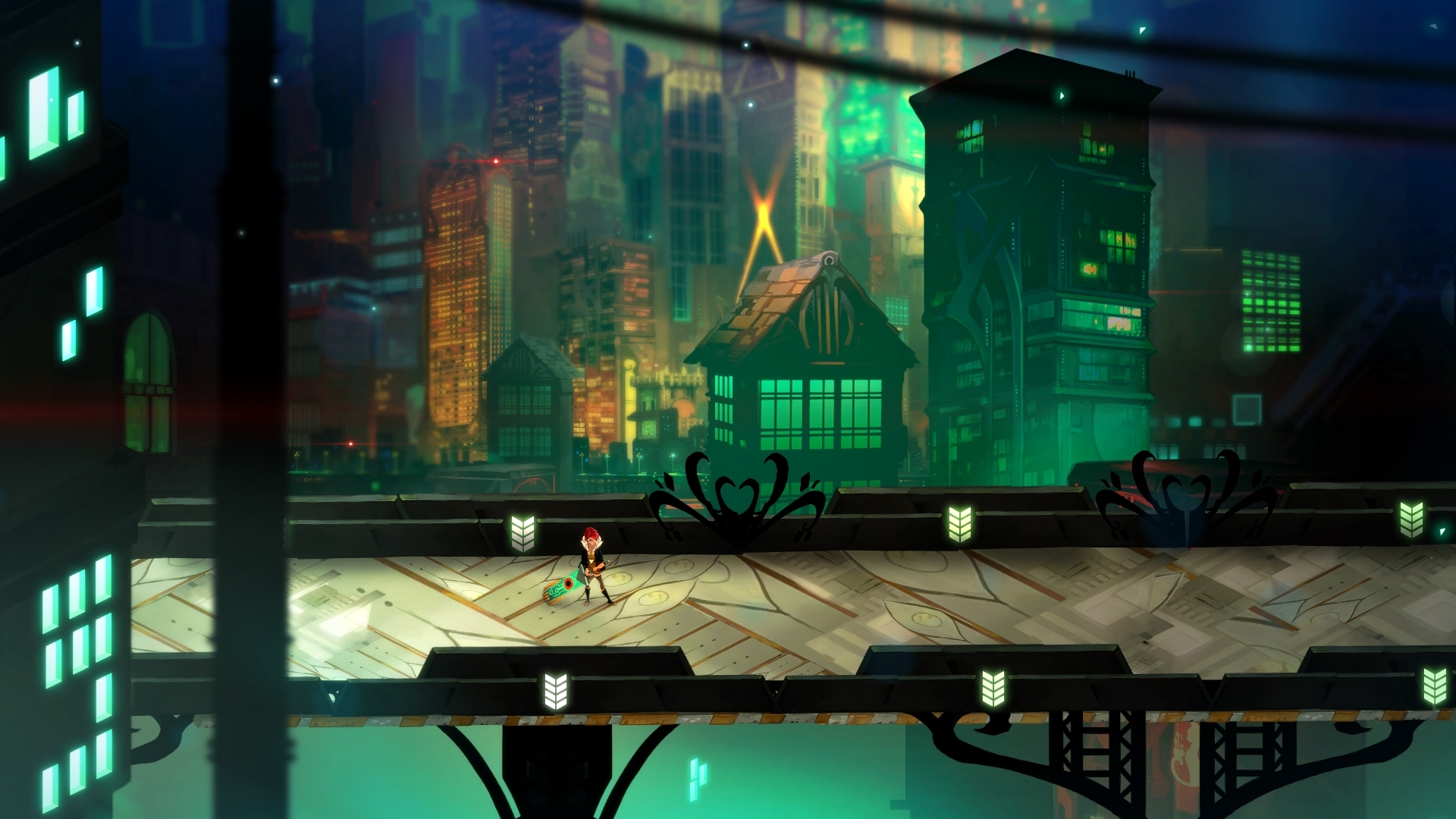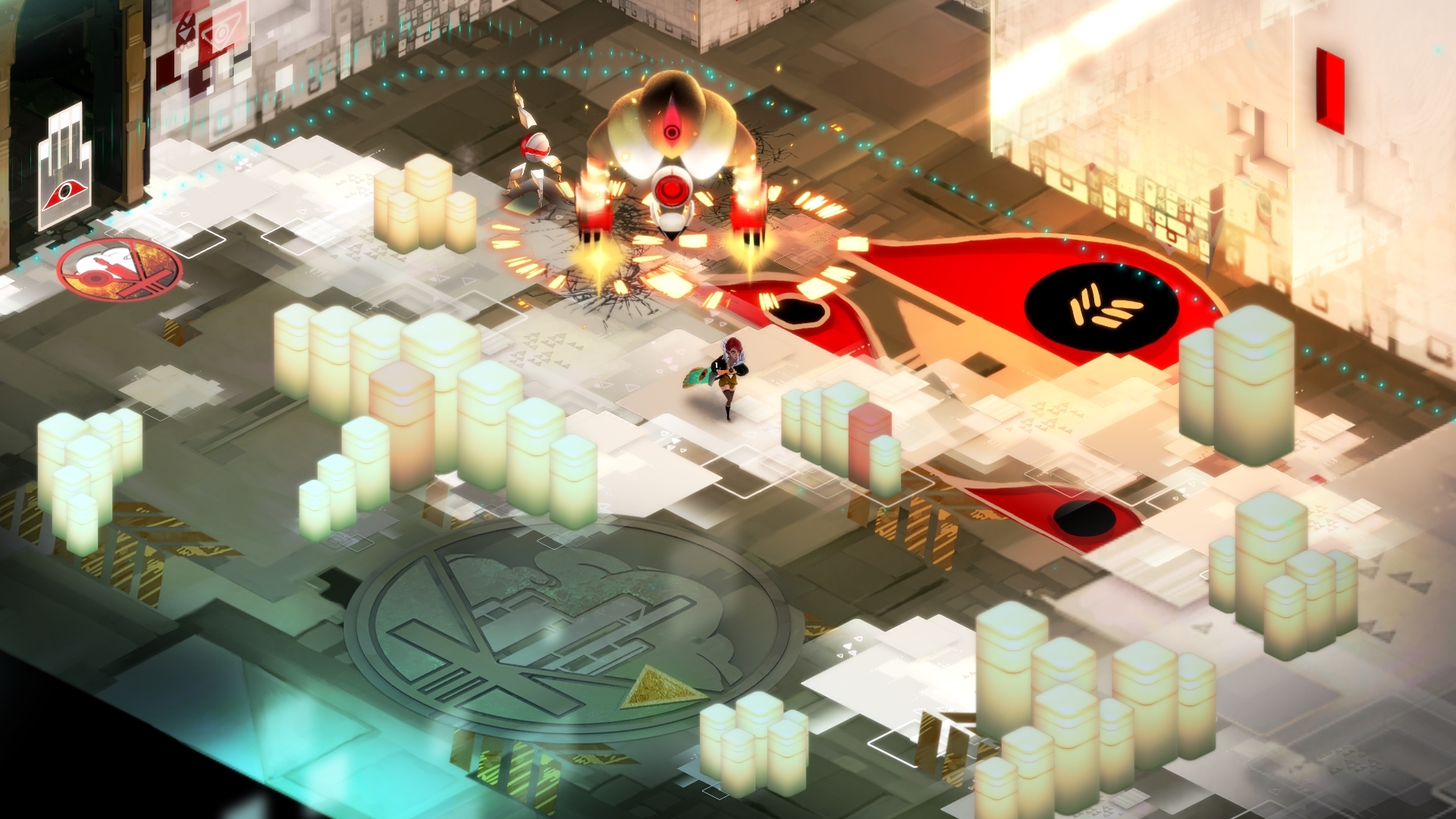Transistor - Review
For all their hundred-million dollar budgets and hundreds strong development teams, it feels as if indie games have all but entirely eclipsed those of AAA developers. Transistor stands at the precipice of this phenomenon, an unprecedented achievement in artistic vision and game design that I hesitate to review for fear of not doing it justice. Supergiant Games, creators of the outstanding Bastion, have not been resting on their laurels, returning after three years with an experience that has completely toppled any expectations I previously had for it, leaving me stunned and in awe at the scope of their vision and the skill in which they execute it. Transistor is, simply put, a masterpiece. Transistor isn’t the story of a falling city; of the rebel group, Camerata, letting loose a viscous process to annihilate the city of Cloudbank to be rebuilt to their designs. It’s not the story of the many characters filling its voluminous backstory, fleshing out a fascinating futuristic dreamscape that is so similar yet different to our own world. No, it is the story of two people, or more accurately the relationship between a girl and her sword. The dynamic between Red, a singer who has had her voice stolen, and the Transistor, a talking sword now housing the soul of a deadman, is what drives the narrative. Despite Red’s inability to talk, the Transistor’s dialog creates a tangible connection between the two; an emotional tie that makes the continued suffering of Red, and the guilt expressed by the Transistor (who somehow feels responsible for what happened to Red), incredibly real and heartbreaking.

It would be too easy to write Transistor off as using its many narrative tricks to hide the fact that its plot is fairly straightforward, because it’s not about what happens throughout the story, but the relationship between its two leads that makes it so compelling. All too often games will try to force characters to depend on each other, whether through arbitrary mechanics or clichéd victim roles, but Transistor sidesteps this issue by having the two characters literally rely on each other to survive. They need each other, and its for this that the narrative manages to create such an effective emotional connection with these characters; similarly causing you to despise those that have put them through so much distress. As simple as it may sound, the nuance of every line and its delivery is no small feat, and a true testament to the writers and voice actors behind them.
I could go on at end for how emotionally invested I became in the characters of Transistor, but it’s the finesse of its gameplay that truly astounded me. Aside from some mild exploration, the experience is entirely focused around its incredibly deep and rewarding combat system, which seems outwardly inaccessible but is shockingly intuitive once you get your hands on it.
Combat can be broken down most easily into two phases: real-time and the planning stage. During the former, you can use any of your abilities at will, but enemies in turn can also move and attack, which becomes an issue with the long build up required for most attacks. This is when you transition to the second phase, which then turns the game into a sort of strategy RPG, freezing time and allowing you to plan out your moves (which will then be executed near instantly when you leave the phase) with the only restraint being the action bar which is used up with each move you make. It's not an entirely unique formula, but Supergiant Games has carved out an incredibly fine tuned and complex niche for itself, with the sheer number of different ways you can approach an encounter.

Every action you make is the result of a function you have slotted in, which in turn can then have additional functions slotted on top of themselves, as well as passive functions which give you boosts outside of individual moves. However, none of these are separated into classes or otherwise excluded from being assigned a specific role with the rest of your abilities. This creates an incredible amount of options for you to experiment with, with each function you unlock having three unique abilities onto itself (if not more when combined with other functions), and new functions being added regularly as you progress and level up.
Supergiant has also found a brilliant incentive to getting players to try out new combinations they might otherwise never use, by tying every bit of backstory to a specific function, which then needs to be used in all three slots (technique, enhancement, and passive) in order to unlock all of a character's biography. It’s a fantastic way to almost entirely fix a common problem of getting stuck in a routine of the using the same abilities the entire game, and had me constantly swapping different functions in which kept the combat fresh the entire game (even after having beaten it I haven’t used every combination there is, creating a ton of replay value on top of the already included new game plus mode).
Bastion was an undeniable artistic treat, but in comparison to Transistor it might as well be a rough prototype of a game. The art design of every single frame is unbelievably gorgeous, from amazing architecture and environmental designs, to characters and even the subtle yet beautiful sparks that spring forth from Red dragging the Transistor around. The dark color palette matches the somber mood of the narrative, but it does so without bringing you down with it, leaving enough brightness and pure beauty despite the events happening around you to make you feel like you’re on a vacation to a fantastical city in the sky. Darren Korb once again returns to deliver a soundtrack that surpasses what I even thought he was capable, with a layered and elaborate score that still feels as raw and personal as he's known for.
Final Word
Transistor left me floored. What Supergiant Games has accomplished is hard to properly put into words, as even with all I’ve said I can’t help but think I’ve barely scratched the surface of the praise I wish to heap upon the game. It’s vision is remarkable, stunningly consistent and inspired in every aspect, achieving a level of excellence that exceeded my already high expectations. It’s undoubtedly one of the best games I’ve played this, or possibly any year, and is an experience that cannot be overstated or should in any way be passed up.


